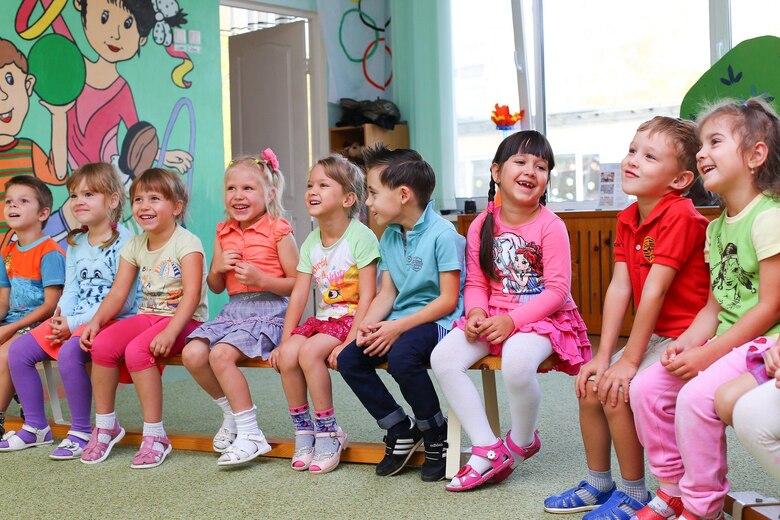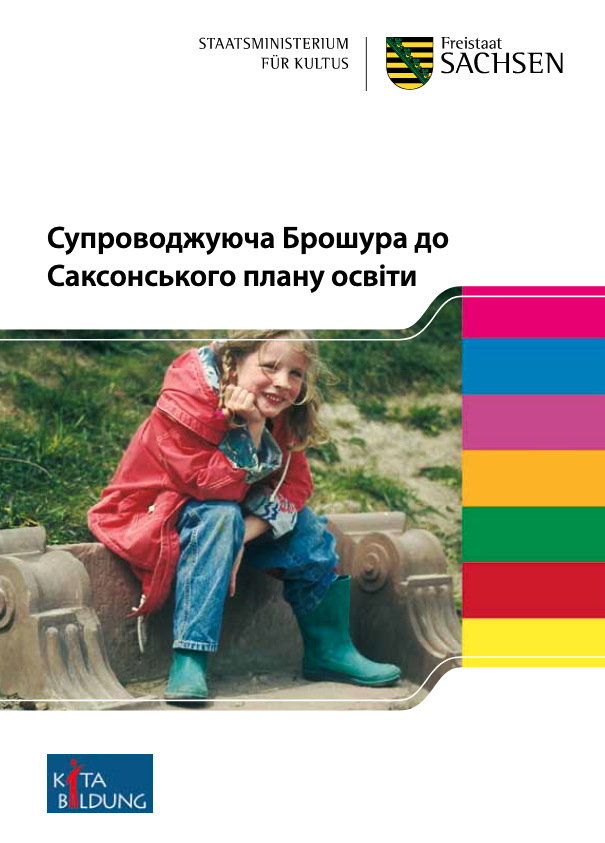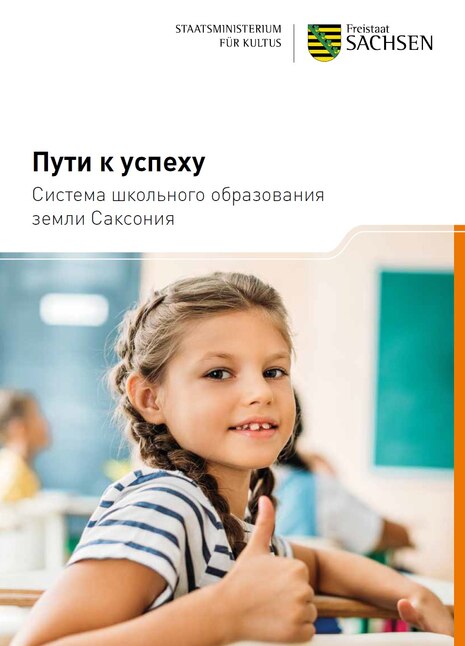Children and schooling
Employment opportunities for Ukrainian refugees
Additional teachers and school assistants with Ukrainian language skills are able to work at schools. The aim here is to offer refugee children more lessons in their native language.
The migration/integration co-ordinators can provide information on employment opportunities. Their contact details are below:
Child day-care - a good start
In Germany, children aged 1 and over are entitled to receive care and support at a day-care facility or from a childminder - regardless of whether their parents are gainfully employed or not. This right is established in Section 24 Paragraph 2 of Volume 8 of the German Social Code (SGB VIII). You too can (and should) enrol your child in a nearby day-care facility or childminding service. This will enable your child to learn German quickly and make contact with other children. The earlier your child can learn German, the easier it will be for them later on at school.
If you are interested in a day-care placement, please contact your local town hall. They will be able to arrange a placement for you at a suitable day-care facility.
You can apply to the youth welfare office in your local district or independent municipality to have the costs for this covered. The facilities provide food and beverages for the children. You can also apply to the relevant youth welfare office for (partial) cost coverage of this. If your child cannot eat certain foods, you will need to discuss this with the child-care facility staff. Your child's specific needs will be taken into account.
If you would like your child to visit a childcare facility you must provide proof of vaccination against measles. On the first day your child attends a nursery, you must also present certification that your child is suitable for attending such a day care facility. This certification can be obtained from your doctor.
You can have your child looked after during the day by a day-care facility or childminder. If your child is at least one year old, they are entitled to be educated and cared for at a nursery school or day-care service. From the age of 3 until they start school, they can attend a kindergarten. Thereafter, school-age children can attend facilities providing before-school and after-school care.
Your local youth welfare office will provide you with information on all day-care centres and childminders near you. You will need to sign a care contract before your child can be looked after at a day-care centre or by a childminder.
Part of your child's care needs to be paid by the parents. If you cannot afford this, your local youth welfare office will cover the costs.
As part of the 'Education and Participation Package', you can also receive an allowance for your child's communal lunches at the day-care facilities.
Your local youth welfare offices will provide you with information on how to apply/get approved for coverage of the parental fee and the Education and Participation Package.
Schooling (for your children)
From the age of 6 years, your child is entitled and obliged to attend school. Attending school will enable your child to learn German quickly and will broaden their prospects for the future. Please do all you can to support your child. Government schools in Germany are free to attend.
As parents, you are obliged to enrol your children in school. This is done at the various branches of the Saxon State Office for Schooling and Education, where you will also be provided with information and materials relating to Saxony's school system.
The branches of the Saxon State Office for Schooling and Education have migration/integration co-ordinators to handle your questions about education and schooling.
The Saxon school system starts with primary school, which lasts for 4 years. This is followed either by 'Oberschule' (leading to a 'Hauptschulabschluss' or 'Realschulabschluss' qualification) or 'Gymnasium' (leading to an 'Abitur' school-leaving examination certificate). Thereafter, students can attend vocational school (leading to a 'Fachabitur' qualification to study at a university of applied sciences and/or a 'Berufsabschluss' vocational qualification). Further information is available from the specialist counselling centres at the Saxon State Office for Schooling and Education.
You may also be able to apply to your local authority for education and participation benefits for your children. This will enable you to have the costs for class excursions, lunches, homework support, learning aids and kindergarten attendance or similar partly refunded or fully covered.
Children up to grade 4 can be looked after at an after-school-care facility, where they complete their homework as a group and can also play sports and games. You can apply to your local youth welfare office to have the costs of after-school care covered. In the interests of your child, be sure to make use of your school's parents interview and parents nights. If you are not adequately proficient in German, take someone with you to interpret. You can contact your child's teachers at any time if you have any questions or queries.
Process for enrolling Ukrainian schoolchildren into grade one for the 2023/24 school year – information for parents
Dear Ukrainian parents,
If your child was born between 1 July 2016 and 30 June 2017, they need to be enrolled in grade 1 for the 2023/24 school year (first day of school: 21 August 2023) in Saxony. There is a set school district with designated schools for your residential address.
Please enrol your child at your local primary school (or community school). If you have any queries, please contact your nearest primary school.
Follow the official information provided in your region regarding this to find out the enrolment dates.
Please do not use the electronic enrolment process for future first-grade children. Thank you. In doing so, you are helping us prepare and plan for the coming school year.
The Saxon State Office for Schooling and Education
Bautzen branch
Andreas Zeh
Postal address:Otto-Nagel-Straße 1,
02625 Bautzen
Phone: 03591 621145
E-mail: andreas.zeh@lasub.smk.sachsen.de
Chemnitz branch
Claudia Elsner
Postal address:Annaberger Straße 119
09120 Chemnitz
Phone: 0371 5366355
E-mail: claudia.elsner@lasub.smk.sachsen.de
Dresden branch
Astrid Ebert
Postal address:Großenhainer Straße 92
01127 Dresden
Phone: 0351 8439427
E-mail: astrid.ebert@lasub.smk.sachsen.de
Leipzig branch
Dr. Christine Mäkert
Postal address:Nonnenstraße 17 a
04229 Leipzig
Phone: 0341 4945725
E-mail: christine.maekert@lasub.smk.sachsen.de
Zwickau branch
Marisa Fischer
Postal address:Makarenkostraße 2
08066 Zwickau
Phone: 0375 4444272




